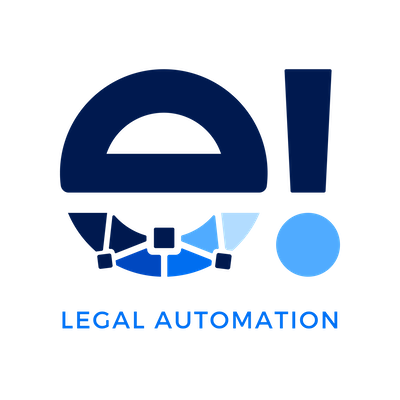Law firms have long been a traditional legal service provider, but in today’s digitalised world legal automation is becoming increasingly important. By offering legal self-services to their clients, law firms can deliver digital legal services more efficiently and cost-effectively than ever before.
The use of legal self-services opens up a range of opportunities for law firms to provide better customer experiences and improved operational efficiency—all while saving time and money. In this blog post, we will discuss the advantages of legal self-services for law firms, such as increased client satisfaction, improved accuracy in document creation, streamlined processes and reduced costs. We will also look at how law firms can take advantage of these benefits by implementing legal automation into their operations.
Why?
Legal Self-Services are all about empowering the clients to take control of their own processes. No longer will they be reliant on manual input from the creator. With just a few clicks and the completion of a few client-specific fields, the clients will be able to generate 100% compliant documents or trigger workflows on their own. This is the future of legal automation, and you should lead the charge. Welcome to the era of Legal Self-Services.
Increased Client Satisfaction

Legal self-services provide clients with 24/7 legal advice and document preparation at their own convenience, leading to increased customer satisfaction. Clients are also able to track the progress of legal documents in real-time, allowing for a more transparent legal process. Furthermore, legal automation helps law firms reduce time spent on mundane tasks, like document review and editing—which leads to clients receiving faster services without sacrificing quality.
Improved Accuracy in Document Creation
When legal self-services are used to automate document creation, accuracy is improved due to fewer errors from manual data entry. This can save valuable time and resources that would otherwise be needed for tedious revisions or legal disputes related to inaccurate documents. Automated legal processes also eliminate the need for legal professionals to manually read and interpret legal documents, which can greatly reduce the risk of errors in legal services.
Streamlined Processes
Automated legal processes make it easier to manage large volumes of legal data, and streamline legal processes. Clients are able to submit digital legal forms or documents quickly and easily, and legal professionals are able to review them in a fraction of the time previously required. In addition, automated legal processes provide visibility into all areas of law firms’ operations—making it easier to track progress, create reports and identify areas where improvements could be made.
Reduced Costs
Legal self-services help reduce costs by eliminating manual labour associated with document preparation and other tasks. This can free up legal professionals to focus on core tasks, as well as reducing the cost of legal services. By providing digital legal services around the clock, legal self-services also increase productivity by freeing legal professionals from countless hours spent on manual legal processes.
Conclusion
Overall, legal self-services are revolutionising the way law firms deliver digital legal services. From increasing customer satisfaction and improving accuracy in document creation, to streamlining processes and reducing costs—law firms have a lot to gain by implementing legal automation into their operations. By harnessing the power of legal self-services, law firms can stay ahead of their competition and better serve their clients for many years to come.





